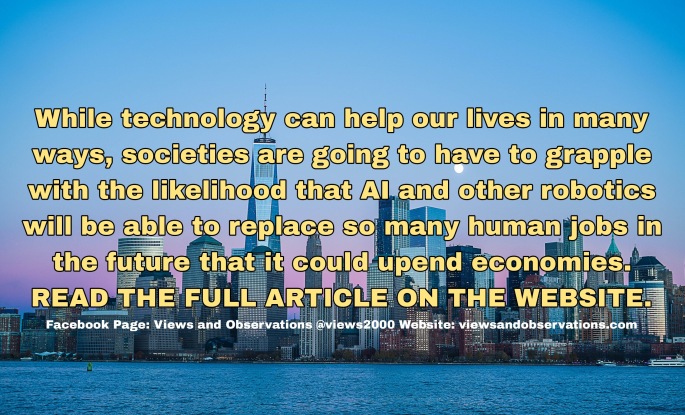People are relieved the actors' strike has been settled, but concerns about AI technology are valid. As technology advances, many jobs will be threatened. In the past, new technology created new jobs, but AI and robotics may eliminate more jobs than they create. This could lead to a lack of employment opportunities and impact society and economies. CLICK ON THE LINK TO READ THE FULL ARTICLE.

